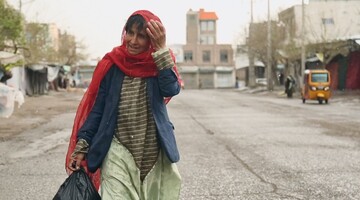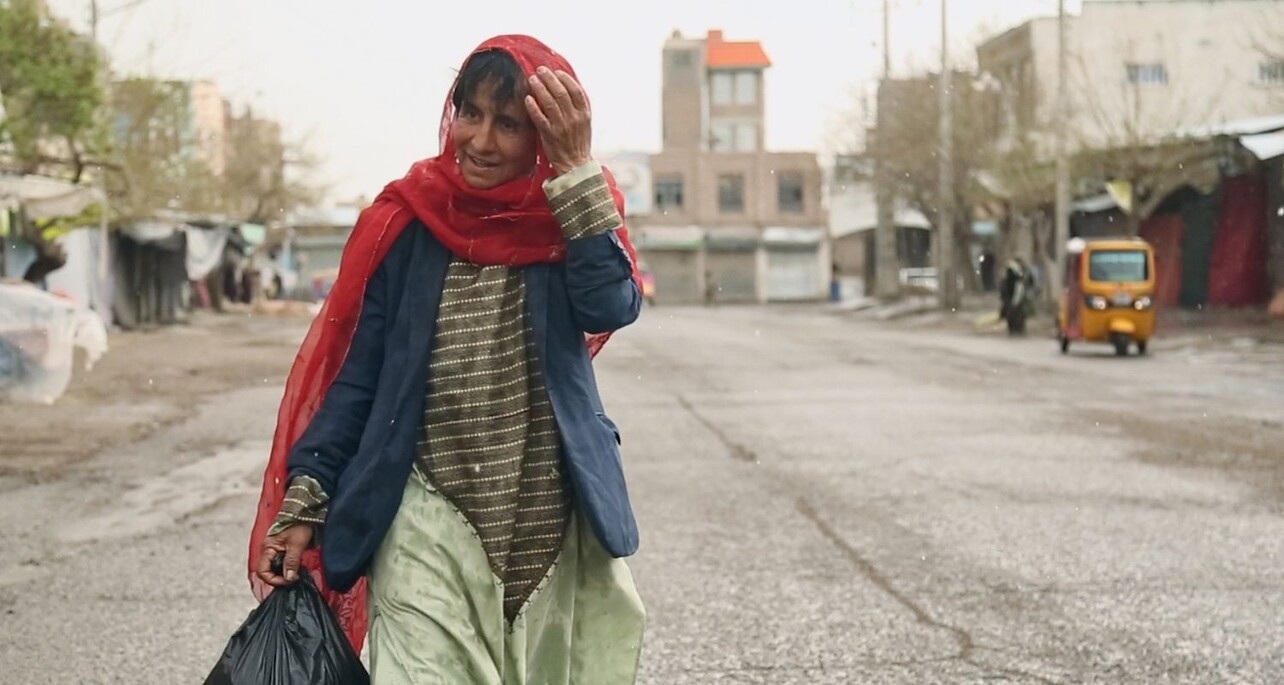
MQ Artist-in-Residence Fariba Haidari on transgender rights, resilience, personal freedom and resistance against injustice
Fariba Haidari is an Afghan filmmaker who grew up in Iran. After her first film projects and workshops in Afghanistan, she has been continuing her work in Sweden since 2012, where she has made several documentaries and short films and is working on new projects. In 2024, she received an award at the this human world – international human rights film festival for her film "Leila". Isabella Flucher (this human world) spoke with Haidari about her multifaceted cinematic work.
The film "Leila" presents a nuanced portrayal of transgender identity and resilience. What conversations did you hope Leila would spark about transgender´s experiences within Afghanistan?
I wanted this film to spark conversations in Afghanistan about the absence of legal rights and official recognition for transgender individuals, and talk about about the traditional social attitudes that define them as “defective” or “mentally ill” rather than as full and valid members of society. The film seeks to highlight the widespread experiences of mockery, harassment, and forced invisibility that push transgender people into isolation, as well as the lack of acceptance within families—particularly toward transgender youth—who are pressured to hide their identity and conform to social norms. Through characters like Leila, the film raises questions about human rights, personal freedom, and dignity, while portraying the courage required to live openly and authentically in a context that resists such visibility.
And beyond Afghanistan?
Internationally, I wanted the film to encourage reflection on how Afghanistan’s situation compares with societies where transgender rights and acceptance have emerged through modern legal reforms and changing cultural values. Although people in Afghanistan have, in the past, accepted transgender individuals to some extent, this acceptance has been grounded in viewing them as “abnormal” rather than recognizing their gender identity as valid. By presenting this contrast, the film invites broader discussions about how different cultures understand gender identity, rights, and personal freedom, while acknowledging that the risks faced by transgender individuals in Afghanistan remain significantly greater than in many other contexts. Through Leila as a symbol of resilience and resistance against injustice, the film seeks to open conversations about global responsibility, solidarity, and the forms of support and representation offered by the international community to transgender people from Afghanistan.
“Leila” won international prices. How was the film perceived by Afghan viewers?
Unfortunately, we have not been able to screen the film in Afghanistan because of the Taliban. We were even afraid of releasing it at international film festivals before Leila could reach a safe place. However, Afghan viewers who have seen the film at international festivals believe that it raises a very urgent and important issue on a global level. At the same time, they felt that I should have shown more of how Leila was physically harmed in Afghanistan, while my focus was primarily on her psychological injuries rather than the physical ones.
As a filmmaker navigating two cultures, what challenges and opportunities have you encountered in bringing Afghan narratives to European audiences?
I am happy that I have many opportunities to develop my filmmaking experience in Sweden. My filmmaking in Afghanistan was more focused on the issues themselves rather than on form or film language. Now I am able to work with both, learning in many different ways. There is also film funding available here, which allows me to concentrate more on creativity rather than financial limitations. As a filmmaker who still cannot separate herself from Afghanistan, I remain closely connected to the country—especially to Afghan women who have many important stories that should be told.
What are you working on currently?
I’m working on my feature screenplay. I began it in August 2021, when the Taliban took over the country. My first idea focused on censorship in Afghanistan and how it has led to cultural and educational isolation for people—especially women. I hope to find a producer who can help me move forward and bring this film to life. I also have two documentaries currently in development.
